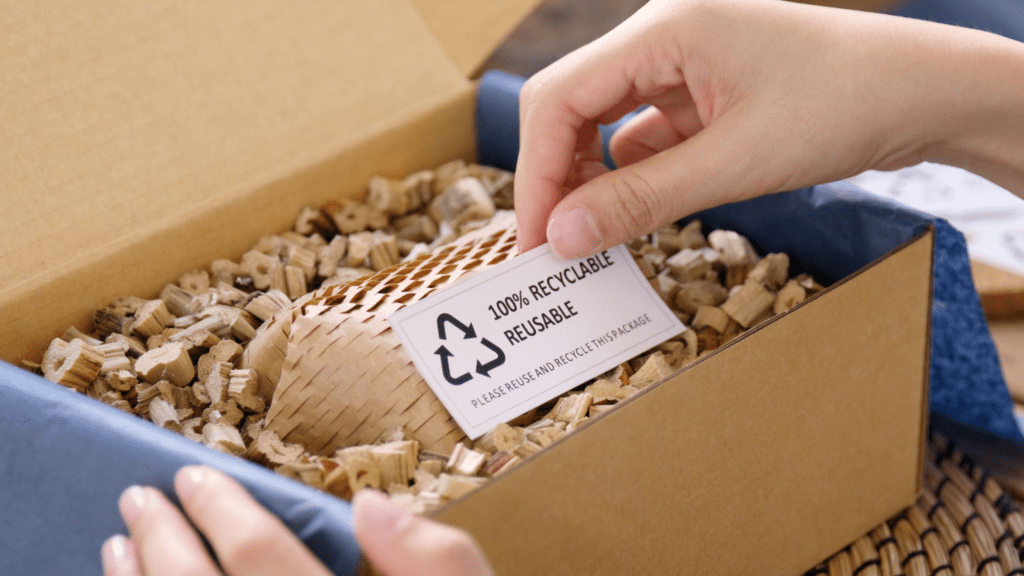Introduction
In today’s environmentally conscious world, there’s a growing demand for products that are not only sustainable but also eco-friendly. Consumers and companies are embracing the responsibility to reduce their environmental impact, making it a powerful movement that’s reshaping the Consumer Packaged Goods (CPG) industry. However, as the demand for eco-friendly options rises, it’s crucial for CPG companies to be aware of regulations that prevent misleading claims and greenwashing.
Understanding the Regulatory Landscape
Regulatory agencies in the US, Europe, and the UK are actively expanding frameworks to combat greenwashing, ensuring that sustainability claims are accurate and transparent. This means that as consumers prioritize eco-conscious choices, the need for clear and reliable information about a product’s sustainability claims becomes paramount.
CPG companies face increasing compliance risks as they navigate advertising rules related to sustainability. Violations can result in legal consequences, significant fines, and damage a brand’s reputation, therefore to avoid falling into the trap of greenwashing, companies must adhere to strict guidelines set by regulatory bodies in the regions where their products are marketed and sold.
Risks of Greenwashing
Government watchdog agencies, such as the Federal Trade Commission (FTC) in the United States and the Competition and Markets Authority (CMA) in the United Kingdom, play a crucial role in enforcing environmental marketing regulations. The FTC, for example, has taken significant enforcement action, with a total of 39 cases related to environmental marketing claims. Additional regulating agencies such as the Advertising Standards Authority (ASA), UK, has addressed 422 complaints where ‘environmental claims’ were used. A notable case involved a predominant laundry detergent brand, Persil, that was banned for being misleading about its environmental benefits.
Overview of Sustainability Claims Regulations in the US, UK, and EU
Below, we outline the key aspects of the different legislative frameworks that apply to environmental marketing practices in the United States, United Kingdom, and European Union.
| United States FTC Green Guides | European Union Green Claims Directive | United Kingdom Green Claims Code |
| In the United States, the Federal Trade Commission (FTC) governs environmental marketing claims in advertisements, product packaging, and standalone sustainability reporting. The FTC requires advertisers to have a reasonable basis for their sustainability claims. “In the context of environmental marketing claims, a reasonable basis requires competent and reliable scientific evidence. Such evidence consists of tests, analyses, research, or studies that have been conducted and evaluated in an objective manner by qualified persons and are generally accepted in the profession to yield accurate and reliable results.” 16 C.F.R. § 260.2 | In 2023, the European Commission unveiled its proposal for the Green Claims Directive. The directive’s primary objective is to combat greenwashing by establishing clear guidelines for companies on promoting environmental claims to consumers. The directive requires businesses to substantiate their environmental claims with a comprehensive assessment. This means that companies must provide credible evidence to support their assertions, ensuring that consumers are not misled. In addition to demanding substantiated claims, the directive also introduces stricter rules for the approval of new environmental labels. | The Competition and Markets Authority (CMA) published the Green Claims Code in September 2021 and announced that it is focusing its efforts into looking into green claims by FMCGs in February 2023. The requirements are stringent; claims must be fully backed up with data, clear, complete and consider a product’s whole lifecycle, production to disposal. Any shortcomings could constitute greenwashing and lead to action by the regulator for misleading consumers. |
Best Practices on Making Sustainable Claims
Making sustainable claims on consumer products requires careful consideration and adherence to ethical and legal standards, especially given increased regulations governing green claims. While regulations may vary, the principles behind sustainability claims share common ground. Here are some general best practices to follow:
- Accurate and Substantiated Data: Ensure that all sustainability claims are accurate, truthful, and substantiated by credible evidence, such as Life Cycle Assessments (LCAs). Avoid exaggeration or vague statements that could mislead consumers. Conduct life cycle assessments and gather data to support your claims. Third-party certifications and independent assessments can add credibility.
- Clear and Transparent Communication: Clearly communicate the specific aspects of your product that make it sustainable. Provide detailed information about the environmental benefits and how they were measured. Avoid using terms that may be vague or unclear, such as “eco-friendly” or “green.” Instead, use specific and measurable metrics.
- Transparency in Supply Chain: Provide transparency into your supply chain, showcasing sustainable practices at every stage. Consumers are increasingly interested in knowing the environmental impact of the entire production process.
- Continuous Improvement: Demonstrate a commitment to ongoing improvement in sustainability. Regularly update your practices and sustainability assessments to align with recent changes in product formulations, or other supply chain changes.
- Educate Consumers: Educate consumers about the environmental impact of your product and how they can contribute to sustainability by using it. Clear communication and easy to understand labels can help build trust and loyalty. For expanded communication, consider the use of QR codes that link to more information on the web.
How CarbonBright Can Help With Sustainable Claims
CarbonBright’s platform automates product-level impact metrics calculation using a large proprietary database and an AI-driven engine, enabling organizations to meet regulatory demands and validate sustainability claims. It offers automated Life Cycle Assessments (LCA) for ‘cradle to grave’ product analysis, ensuring compliance with regulations such as the EU’s Green Claims Directive. The platform provides immediate insights, supports dynamic LCAs, and aids in third-party verification, streamlining compliance and helping organizations navigate sustainability regulations with scientifically backed claims.
Conclusion
In a landscape where sustainability is not just a trend but a powerful force shaping industries, responsible and transparent practices are key to meeting the demand for genuinely eco-friendly products and contributing to a sustainable future. Utilizing life cycle assessments, third-party certifications, and improving sustainability practices builds consumer trust and meets the demand for truly eco-friendly products, essential for a sustainable future.

About CarbonBright: CarbonBright brings accurate and comprehensive product-level sustainability data to suppliers, retailers & brands in the Consumer Packaged Goods Industry, enabling transformation across supply chains to meet global demand for more sustainable products, while improving agility, resilience, and brand differentiation.
